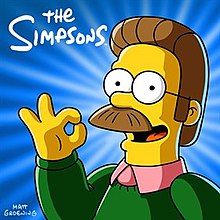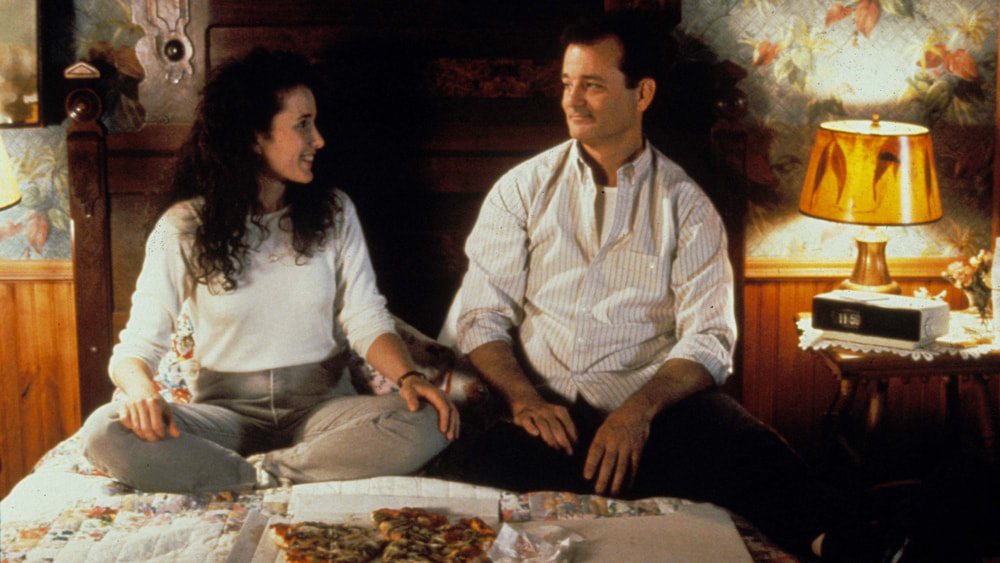Chuck Sigars Twenty-odd years ago, I had some conversations at the church I was attending. This was the 1990s, and I was talking about how much I enjoyed The Simpsons. Some historical perspective—When the U.S. finally got the long-talked-about “fourth” TV network (PBS not counting, apparently), it was Rupert Murdoch’s baby. He assembled nation-wide stations to join, and they premiered The Late Show with Joan Rivers (resulting in a permanent break between Rivers and her ostensible rival, Johnny Carson). That sort of died, but eventually Married...With Children came along, then 21 Jump Street, and The Tracey Ullman Show, from which sprung The Simpsons. More perspective, too. Fox Broadcasting Company, later shortened to just Fox and then FOX, had a business plan of appealing to the lowest common denominator, it seemed, and it was the opinion of many that Married... was a new low in coarseness and vulgarity on television. This was a very popular opinion (I couldn’t disagree, catching only a few minutes). So when The Simpsons came around in 1989, with the bratty little kid and dysfunctional family, people I talked to viewed it in the same light. Crude, inappropriate, vulgar. But I liked The Simpsons, at least in the beginning, and I eventually wrote a little essay that I passed around in church, pointing out that this was satire but actually highlighted dysfunction in the modern American family. If you want to look at it for lessons, note the Flanders. Satirical Christians, but ethical and honest and nice and trying their best to live a grace-filled life. Church also played a big part of the story of the Simpsons. I just trying to point out that quick dismissals can lead us to miss insights, or at least opportunities to laugh and then discuss. I changed a few minds, maybe. I haven’t watched The Simpsons in years, but in those days it was funny, and not because of vulgarity. ... I’ll admit to missing the old days, heading out to the movie theater with friends and then gathering afterward to deconstruct. We examine character choices and plot developments, and if we’re ambitious we’ll wander into the ethical and moral situations portrayed. We can learn stuff, and this fascinates me. And not just in movie theaters. I’ve been watching NBC’s The Good Place for the past few seasons, and I’m always entertained and provoked by the big issues they manage to squeeze into a 23-minute sitcom about the afterlife. See, the show doesn’t present any conventional philosophical or theological viewpoint about life after death; it’s all about ethics and morality, about doing good things during your time on earth and earning a spot in paradise. At first, it seems like a lot of people make the cut, and The Bad Place is rarely mentioned. Both of those change pretty quickly, but if you’re interested you could probably binge the whole series pretty quickly. It will keep you on your toes. ... Both of these examples—that we might be able to siphon off some ideas about leading better lives from our normal, silly modern media entertainment—are things I think about often. We’ve become used to laugh tracks and bawdy humor and questionable choices, but if we run across the right one, the right film or the right show, our eyes can open a little. And so we come to Groundhog Day. You knew I was going to get there. Two years ago, we showed Groundhog Day at St. Andrew one night, then had a little discussion afterwards. What started out as a stray idea in the mind of screenwriter Danny Levin—what would happen if someone got stuck in a time loop and had to relive the same day over and over—became a 1993 film directed by Harold Ramis and starring Bill Murray and Andie McDowell. It did OK, sort of average, and then it just kept going. Dozens, maybe hundreds of scholarly articles have been written about this film. It is beloved and admired by many of the world’s faith systems, all of them finding something familiar in this one, deeply unpleasant and lonely and antisocial man’s supernatural experience. And, of course, how it eventually becomes resolved. There are obviously deeply spiritual people on this planet, covering the spectra of theology and morality. It shouldn’t be surprise that some of them make movies, or TV shows. And that some of their feelings seep through. And as many of us are also deeply spiritual people, we may find ourselves surprised at what seems like ordinary entertainment that provokes serious thought, and with luck some conversation. There’s a 2003 independent film called Off the Map, directed by Campbell Scott and starring Sam Elliott, Joan Allen, and JK Simmons, about an early 1970s family that moves to the middle of nowhere in New Mexico and completely live off the grid, growing and hunting their own food, for really unclear reasons. We know the father, Elliott, has developed debilitating depression. The young daughter uses a bow and arrow to hunt animals, saying a prayer over the corpses in gratitude for the bounty. It’s a stunningly spiritual film, as well as entertaining and just beautiful to watch, but it’s hardly on anyone’s radar. There are many, many more. This Saturday, February 2, is Groundhog Day. If you’ve got nothing much to do, you might watch Groundhog Day. It might make you wonder about routine, and about how we break the chains that bind us to our worst selves, and how the only way we escape is by changing. By allowing ourselves to love, in other words. As I said, there’s a lot to ponder there.
0 Comments
Leave a Reply. |
Archives
June 2024
Categories
All
|

 RSS Feed
RSS Feed